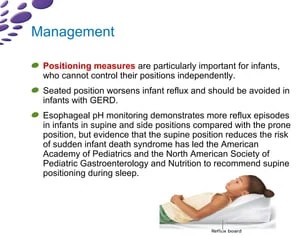A nurse is teaching a group of parents about appropriate food choices for toddlers. Which of the following choices by the parents demonstrates an understanding of the teaching?
Steak cut into small pieces
Cooked spaghetti with sauce
Hot dog cut in fourths
Caramel popcorn
The Correct Answer is B
Steak cut into small pieces: While it is important to introduce a variety of textures and flavors to toddlers, steak may be challenging for them to chew and swallow safely. It is recommended to offer softer and more easily chewable protein sources, such as finely minced or shredded cooked meat, ground meat, or soft fish.
Cooked spaghetti with sauce: This is a good choice for a toddler. Cooked spaghetti with sauce provides a balanced meal that includes carbohydrates from the pasta, nutrients from the sauce (e.g., vegetables, protein), and a variety of flavors and textures. It is important to ensure that the spaghetti is cooked to an appropriate tenderness for the toddler's chewing and swallowing abilities.
Hot dogs cut in fourths: Hot dogs pose a potential choking hazard for toddlers due to their cylindrical shape and texture. Cutting the hot dog into smaller pieces is a safety measure, but it is still recommended to be cautious with hot dog consumption and offer alternative protein sources that are safer and easier to chew.
Caramel popcorn: Caramel popcorn is not an appropriate food choice for toddlers. Popcorn can be a choking hazard due to its small, hard, and irregular shape. Caramel popcorn can also be high in added sugars, which are not recommended in excess for young children. It is important to provide safe, age-appropriate snacks that are easy to chew and swallow, such as cut fruits, soft-cooked vegetables, or age-appropriate crackers.
Nursing Test Bank
Naxlex Comprehensive Predictor Exams
Related Questions
Correct Answer is C
Explanation
"Position the newborn at a 20-degree angle after feeding": This is the correct instruction. After feeding, it is beneficial to position the newborn at a slight angle, usually around 20 degrees, to help reduce gastroesophageal reflux. This position helps gravity keep the stomach contents down and prevents them from regurgitating back into the esophagus.
"Provide a small feeding just before bedtime": This instruction is not recommended for a newborn with gastroesophageal reflux. It is advisable to avoid feeding the baby just before bedtime as lying down can worsen the reflux symptoms. Instead, it is generally recommended to keep the baby upright for some time after feeding to allow for proper digestion and minimize reflux.
"Place the newborn in a side-lying position if vomiting": Placing the newborn in a side-lying position after vomiting is not recommended. This position does not provide adequate support to prevent choking or aspiration in case of vomiting. Instead, it is recommended to keep the newborn in an upright or slightly elevated position after feeding to minimize reflux.
"Dilute formula with 1 tablespoon of water": Diluting formula with water is not a recommended practice unless specifically advised by a healthcare provider. It is important to follow the instructions on the formula packaging or the healthcare provider's guidance regarding formula preparation to ensure appropriate nutrition and hydration for the newborn.

Correct Answer is A
Explanation
Hydrolyzed formulas are appropriate for clients who have inflammatory bowel disease. Hydrolyzed formulas are composed of partially or fully broken down nutrients that are easier to digest and absorb. They can also reduce inflammation in the intestinal lining, which can help with Crohn's disease symptoms.
High-fiber formulas are not recommended for clients who have inflammatory bowel disease, as they may worsen diarrhea, abdominal pain, and intestinal obstruction.
Low-protein formulas are also not suitable, as they may lead to protein malnutrition and impaired wound healing.
Low-calorie formulas are not indicated, as they may cause weight loss and increased disease activity.
Whether you are a student looking to ace your exams or a practicing nurse seeking to enhance your expertise , our nursing education contents will empower you with the confidence and competence to make a difference in the lives of patients and become a respected leader in the healthcare field.
Visit Naxlex, invest in your future and unlock endless possibilities with our unparalleled nursing education contents today
Report Wrong Answer on the Current Question
Do you disagree with the answer? If yes, what is your expected answer? Explain.
Kindly be descriptive with the issue you are facing.
